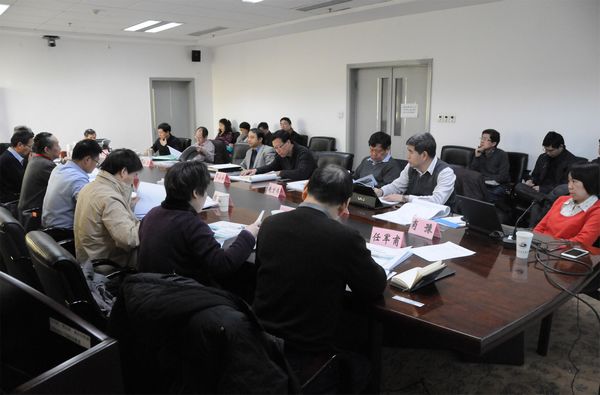Applause for CEPC Conceptual Design
An International Review Meeting for the Circular Electron Positron Collider (CEPC) was held at IHEP, Beijing, from February to March, 2015.
More than 30 leading scientists from around the world took part in the review, including Nobel Prize winner David Gross, former CERN Director General Luciano Maiani, former CERN Theory Division Director M. Mangano, former FNAL Deputy Director Young-Kee Kim, ANL High Energy Physics Division Director Harry Weerts, and KEK Accelerator Division Director K. Oide. Noted scientists from China included Zhao Guangda, CAS Academician from Beijing University and Chen Hesheng, CAS Academician from IHEP. Xuanyuan Xiaowen from the China Civil Engineering Association and the CEPC team members also attended the meeting.
CEPC was first proposed by Chinese scientists in 2012, sparking strong international interest. The first phase of the project plans to build a Higgs factory, aiming to precisely measure the parameters of the Higgs boson, study the SM and CP violation in greater depth, and look for clues of new physics beyond the SM. The second phase will construct in the same tunnel a 50 to 70 GeV proton-proton collider, studying new physics. The CEPC Conceptual Design has been undertaken by scientists from 57 research institutions in 9 countries, including 35 from China.
The review was divided into four sections: physics goals; accelerator design and technology; experimental physics, detector design and technology; and civil engineering and general facilities. In line with the design report, the so-called “white paper”, leading scientists from the different CEPC systems reported at the meeting. The review panel, after serious discussions, concluded that the physics goals are reasonable, the design reports are detailed and cover all the relevant aspects, the location is good for large-scale underground construction, and in general, the design is feasible.
The review panel was deeply impressed by the hard work of the CEPC team, which is mainly composed of the younger generation of scientists, and the reviewers expect that CEPC will strengthen and promote China’s technical capabilities in many fields. They agreed with the establishment of an international collaboration and put forward many useful suggestions, which are essential to further optimize the conceptual design.
CEPC is China’s most ambitious scientific research project so far, and if it gets the green light, it could be the world’s most important particle physics research facility for the next 50 years.

The review meeting of CEPC civil engineering and general facilities (image by IHEP)
Link to CEPC English Website:
http://cepc.ihep.ac.cn/index.html